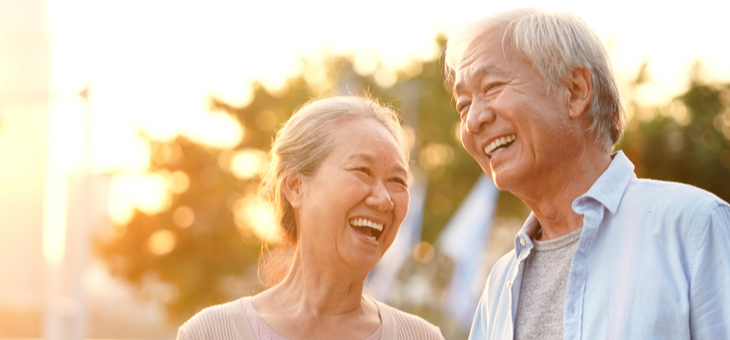Eating a healthy diet and exercising can help to stave off a number of health conditions associated with ageing. However, as you grow older, some changes can’t be avoided.
Heart
As you age, the walls and valves in your heart become thicker, meaning blood can’t flow as efficiently as it once did. Electrical signalling to your heart can also change a little, increasing the likelihood of an irregular heartbeat. When combined with artery plaque build-up, this can pose a health risk. A healthy diet, exercise and not smoking can help to reduce this risk.
Brain
As you get older, the signalling between different parts of your brain can slow down, and some areas can even shrink. Struggling to multitask or remember specific names and words can be a normal part of ageing. If you are concerned about dementia, consult your doctor, although memory loss associated with dementia is far more serious.
Sleep
Your sleeping patterns change as you get older. Insomnia becomes more common in your 70s and you may be more likely to wake up throughout the night. You spend more time in the lighter phases of sleep, and less time getting deep, restorative sleep. Despite these changes, your body still needs seven to eight hours of sleep each night.
Your sex life
Erectile dysfunction and vaginal dryness are more common in older age. Despite this, research suggests that more people in their 70s are sexually active now than ever before. Normalising these changes and talking openly about body image may help to reduce stress and improve your sex life.
Weight
As you get older your metabolism slows down. While some people find that their appetite also reduces as they get older, others find that they need to change their diets to contain fewer calories in order to maintain a healthy weight. Eating whole grains, fruits, vegetables, low-fat dairy and lean protein can help to maintain a healthy weight.
Digestive system
Your digestive system becomes less sturdy and efficient as you get older. Your stomach may become more sensitive to certain foods, and be less able to digest them, leading to constipation. Your risk of developing stomach ulcers also increases.
Eyesight
As you age, your eyes undergo some serious changes. The lens in your eyes become thicker, making it more difficult to see vibrant colours. The muscles in your eyes become weaker, meaning you pupils open and close slower, making it harder to see in dim light and making you more sensitive to bright light.
Skin
You may find that alongside drier skin and age spots, you bruise easier as you get older. Using gentle soaps, sunscreen and moisturising regularly can help.
Bones
One in four women over the age of 65 have osteoporosis. Weight-bearing exercises can help to prevent this. Osteoporosis, alongside stiffening muscles and tendons can reduce your physical strength and flexibility.
Immune system
In your 70s you are likely to lose some of your body’s natural defences, leaving you more vulnerable to common illnesses. On one hand, this means that vaccines won’t work as well on you, but on the other hand, it means that autoimmune disorders are rarer, and allergies become less intense.
Urinary tract
While many men in their 70s may have prostate troubles, making it harder for them to urinate, older women may find they have trouble with urine leaking. This is because the muscles that support your bladder may weaken, and your bladder may not be able to hold as much as it once did.
Hearing
One-third of people aged 65–74 have hearing loss. Half of all people aged 75 or older have hearing loss. High pitched noises can become more difficult to hear and background noises can interfere more than they used to. If you are finding that your hearing is making it harder to have conversations, consult your doctor for advice.
Have you noticed any of these changes? What parts of getting older are you most and least looking forward to?
If you enjoy our content, don’t keep it to yourself. Share our free eNews with your friends and encourage them to sign up.
Related articles:
https://www.yourlifechoices.com.au/health/your-health/ageing-and-your-hormones-in-action
https://www.yourlifechoices.com.au/health/your-health/ageing-and-alcohol
https://www.yourlifechoices.com.au/health/your-health/ageing-whats-normal-whats-not
Disclaimer: This article contains general information about health issues and is not advice. For health advice, consult your medical practitioner.

